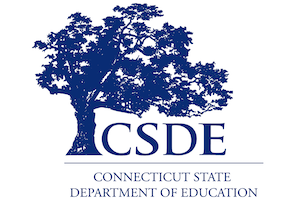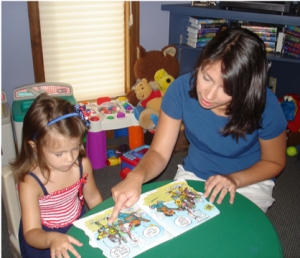Video Module Series - Foundations of Multi-Tiered Systems of Support
The Mini-Module Series: Foundations of Multi-Tiered Systems of Support features five chapters of content:
- The Critical Features of Tier Two Interventions
The goal of this chapter is for participants to identify the critical features of a Tier Two intervention as outlined by the Tiered Fidelity Inventory. - Practices Matched to Student Need
The goal of this chapter is to better understand how to match intervention practices to meet student needs. - The Essential Components of a Hypothesis Statement
The goal of this chapter is to understand the critical components of a hypothesis statement within a behavioral support plan. - Student, Family and Community Involvement in Behavior Planning
The goal of this chapter is to understand the importance of engaging the student, family, and community resources, as appropriate, to develop effective Tier Three plans for intervention and support. - The Features of a Comprehensive Support Plan.
The goal of this chapter is to help participants understand the core features of a comprehensive support plan for students who have not responded to universal or targeted supports, and would benefit from more intensive intervention.
This series is brought to you by Connecticut’s State Education Resource Center, with funding from the Connecticut School Climate Transformation Grant. The U.S. Department of Education awarded Connecticut the grant in 2014, and SERC and the Connecticut State Department of Education subsequently undertook a statewide analysis of Multi-Tiered Systems of Support. This analysis attempted to identify strengths of implementation, as well as areas for improvement that could be targeted through improved training and technical assistance. Each chapter will provide foundational information through which schools can improve implementation.
Viewers may watch each chapter individually, or combined into a single 58 minute presentation.
The Bureau of Special Education's 16th Annual Back to School Meeting

The Bureau of Special Education's
Back to School Meeting
Friday September 9, 2022
Registration
Register online at https://2022CSDE-BackToSchool.eventbrite.com
Downloads and Supporting Materials
This is a paperless event. Bookmark this page for resource downloads. All documents are also available on Google Drive,
located at
https://serc.info/bts22docs.
- Accessible Educational Materials Flow Chart
- Assistive Technology Flow Chart of Consideration and Checklist 2022 B2S
- Bureau Bulletin 2022 B2S
- Connecticut's Part B SPP-APR Indicators 2022 B2S
- Identification Process 2022 B2S
- New England Assistive Technology Center 2022 B2S
- The NEAT Center LEA Membership and Subscription 2022 B2S
- Secondary Transition Contacts.8.30.2022.B2S
- Special Education Coaching for Administrators for 2022-2023 B2S
- Special Education Coaching Trifold Brochure for 2022-2023 B2S
- Special Education Connection - LRP User Guide 2022 B2S
- Special Education Youth Advisory Council -YAC-8.30.2022.B2S
- Virtual Communities of Practice for 2022-2023 B2S
Bookmark this page: https://ctserc.org/bts22 for more information. For technical issues, please contact Stephen Proffitt, Director of Instructional Programs at SERC, at This email address is being protected from spambots. You need JavaScript enabled to view it..
For program/event questions, please contact Jay Brown, Bureau of Special Education, at This email address is being protected from spambots. You need JavaScript enabled to view it.
Math Talk: The Value of Discourse in Math Class and Ways to Encourage it
Student: The answer is 17.
Teacher: How did you get that?
Student: I don’t know. I just did it in my head. I got 17.
Examples like the exchange above are all too common in math classrooms. The Common Core State Standards (CCSS) for Mathematics call for students to discuss the math they are learning, and to explain their thinking. This represents an instructional change from traditional math classes, in which the teacher teaches a concept and students practice it individually. Because the idea of “math talk” is relatively new, it can be a challenge for teachers and students. Both groups need guidance, time and practice to get used to it. The benefits of effective math discourse are numerous and varied. The Principles to Actions from the National Council of Teachers of Mathematics identifies math talk as one of the eight Mathematics Teaching Practices: Facilitate Meaningful Mathematical Discourse. The benefits of such discourse include clarifying understandings, constructing convincing arguments, developing the language to express mathematical ideas, and learning to see things from other perspectives. Discourse about meaningful math content is a fundamental way to develop deep conceptual understanding, which is an important aspect of the CCSS (Principles to Actions, p. 30).
Teachers know from experience that when you try to explain something to someone else, you end up understanding it better yourself. Research supports this notion (Maryellen Weimer, Five Reasons Getting Students to Talk is Worth the Effort, Magna, 2012). Talking about a subject helps the brain make connections, making the subject more meaningful. Listening to and evaluating alternate ideas about the subject leads one to compare the new information with what is already known in order to build new knowledge.
Another reason that math talk is vital is that educators are called to prepare students for the demands of their future. The lists of 21st century skills that students should master include abilities such as: collaboration and teamwork, critical thinking, problem solving, creativity and leadership. These skills are enhanced much more through promoting math discussions in the classroom, rather than having students take notes and solve problems on their own. Students need practice in speaking and listening, appropriately disagreeing, and explaining their thinking in order to be successful in work and life.
Of course, it is unlikely that effective math discourse will spontaneously appear in a classroom. Teachers need to understand that learning productive math talk it is a process, and it will take time and effort to make it happen. Many experts recommend that teachers share with students the importance of math talk, so students understand why they are being encouraged to participate in this way. This is helpful for students of all ages.
Another consideration: Classroom climate. Students must feel safe to share their thinking or make a mistake. Teachers can model appropriate dialogue, provide sentence starters, and use thoughtfully considered questions to further discussions. Above all, teachers and students must be patient, knowing that continued practice will make math discourse easier and more beneficial.
Two resources that can help teachers become better at promoting effective math talk are 5 Practices for Orchestrating Productive Mathematics Discussions by Mary Kay Stein and Margaret Schwan Smith and Teaching Students to Communicate Mathematically by Laney Sammons.
Grant award announced for new CT Statewide Family Engagement Center
As CREC’s partner on this grant, SERC is excited about the announcement of the award to CREC for funding a new CT Statewide Family Engagement Center. We have long approached family engagement as a pillar of our work on behalf of Connecticut’s students and families, including as operators of the CT Parent Information and Resource Center. The $4.9 million toward the new center over the next five years demonstrates Connecticut’s commitment to family engagement, and we look forward to working with our friends at CREC, CPAC, and the CT State Department of Education to further our vision of an excellent and equitable education for all students.
- Press Release, CREC, 10/1/2018
- Statewide Family Engagement Centers Program page, Office of Innovation and Improvement
Full text of the press release follows:
CREC Awarded $4.9 million by U.S. DOE to Lead Partnership for Family Engagement
(Hartford, Conn.) The Capitol Region Education Council (CREC) has been awarded a grant for $4.9 million from the U.S. Department of Education to fund and design the establishment of a Statewide Family Engagement Center (SFEC). The five-year grant is a collaboration between CREC, the African Caribbean American Parents of Children with Disabilities (AFCAMP), the Connecticut Parent Advocacy Center (CPAC), the Connecticut State Department of Education (CSDE), and the State Education Resource Center (SERC). The grant will enable partners to work with communities across the state, providing resources and promoting the engagement of parents, families, students, and other community stakeholders to improve students' academic, social and emotional development.
"This is a unique and timely opportunity to support family engagement statewide. This grant will give all stakeholders—students, parents and families, school and district leaders, state-level policy makers, and community partners—the opportunities and support needed to increase engagement and impact outcomes for our students," stated CREC's Executive Director, Greg Florio. "CREC is honored to lead this work, and committed to promoting full, equal and equitable partnerships."
Through the grant, partnering agencies will implement and expand proven family engagement policies, programs, and activities that lead to improvements in student development and academic achievement.
"SERC is excited about the announcement of the award for funding a new CT SFEC," said SERC's Executive Director, Ingrid Canady. "We have long approached family engagement as a pillar of our work on behalf of Connecticut's students and families, including as operators of the CT Parent Information and Resource Center. The award for the new center demonstrates Connecticut's commitment to family engagement."
The purpose of the SFEC grant program is to provide financial support to organizations that provide technical assistance and training to state educational agencies and local school districts.
"We look forward to working with our partners to strengthen the family voice and improve educational outcomes for all of Connecticut's children," said Ann R. Smith, Executive Director of AFCAMP. "This investment presents a significant opportunity to expand family participation in Connecticut's evolving family engagement framework."
John Flanders, CPAC Executive Director, echoed support for the work of the SFEC partnership. "CPAC enthusiastically looks forward to working with the partners to bring mothers and fathers more fully into collaboration with their children's schools. The $4.9 million award over five years to engage school systems and families to work together for better education outcomes is an incredible opportunity."
The U.S. DOE permitted each state's central education agency to endorse one applicant per state; CREC was the chosen recipient of the Connecticut State Department of Education (CSDE)'s endorsement. Connecticut joins ten other states awarded similar grants: Arizona, Hawaii, Kentucky, Massachusetts, Minnesota, Nebraska, Ohio, South Carolina, South Dakota, and West Virginia.
Using Speech-Language Pathology Assistants and Aides in Connecticut
This learning module has been developed with support from the Connecticut State Department of Education (CSDE) for administrators and school-based speech-language pathologists (SLPs) interested in clarifying the roles of speech-language pathology assistants and aides (SLPAs) in their schools.
SLPAs can supplement the delivery of speech and language services in schools and have a positive impact on students’ communication skills. This professional learning module describes the scope of tasks and activities appropriate for SLPA implementation in Connecticut schools, as well as the types and frequency of supervision required. It also addresses the benefits and challenges of using SLPAs by determining the viability of their use and analyzing cost effectiveness.
This guided learning module has optional audio narration, and 3 downloadable activities.
View the learning module (opens in new browser window)
Read. Consider. Do. Volume 2
READ.
The International Literacy Association's 2018 What's Hot in Literacy ReportFor this annual report, the International Literacy Association (ILA) surveyed over 2,000 literacy leaders from across the globe to find out their thoughts on what's hot and what's important in literacy. The topics that were deemed as "hot" are not the same as those thought to be "important." The top five of seventeen topics are listed below for each category.
Top Five Hot Topics
|
Top Five Important Topics
|
Five themes emerged across the topics that were considered important. The themes were:
- Equity issues
- Community-literacy connections
- Excellence in Literacy Education
- Personalizing Literacy Instruction
- Building 21st-century skills
CONSIDER.
- What topics do you think are "hot"? "Important"? Why? How do your choices align with the topics identified in the survey?
- What do the "hot" topics say about the priorities in education? In literacy education?
- What do the "important" topics say about the priorities in education? In literacy education?
- What did you find surprising in the survey?
- In your school or district, are the "hot" topics and the "important" topics the same? Why or why not? Should they be?
- What implications does this information have for your work?
DO.
- Share and discuss this article with colleagues.
- Advocate for topics that you feel are important but are not getting enough attention.
- Research topics in the report that you would like to know more about.
Please feel free to share your thoughts about this article or Read.Consider.Do. with Janet N.Y. Zarchen at This email address is being protected from spambots. You need JavaScript enabled to view it..



